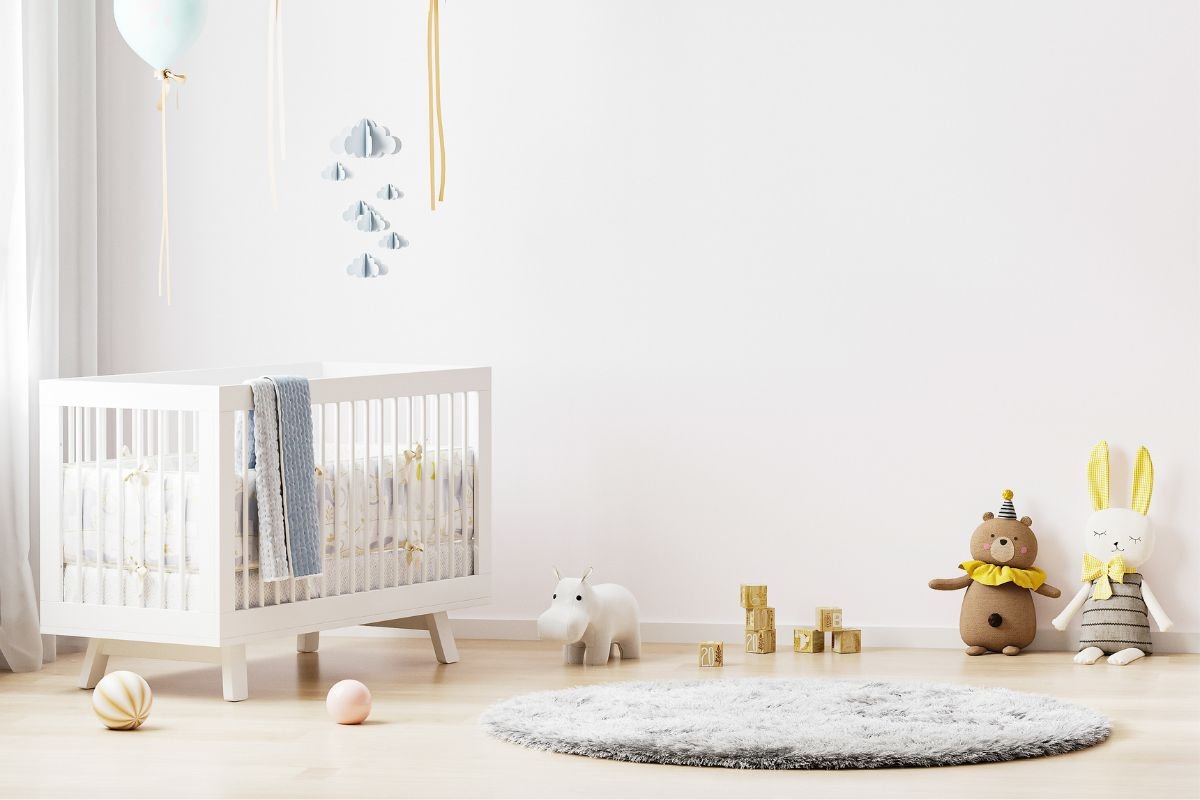The initial three months of pregnancy presented a remarkable and life-altering experience.
My earliest memory of discovering my pregnancy with my little boy still stands clear in my mind. I experienced instant happiness along with simultaneous worry.
A wild rollercoaster ride of physical and emotional changes hit me suddenly and I had to adjust to this new reality.
Time and research helped me learn how to manage the intense changes I faced during this stage through trial and error.
In this article, we will explore some of the common physical and emotional changes you may encounter during the first trimester of pregnancy.
Table of Contents

Disclaimer: This post is for informational purposes only, based on my personal experiences and what I’ve learned over time. Always consult your healthcare provider for advice tailored to your situation.
First Trimester Body Changes: What to Expect
My earliest pregnancy change was slight weight gain which made every physical alteration stand out to me.
For the first trimester I gained approximately three pounds which appeared modest before the bloating started.
My best yoga pants felt tight because of bloating.
My secret weapon? My go-to solution for comfort became loose-fitting dresses while peppermint tea helped me manage my discomfort.
Breast tenderness was another early surprise.
My body reacted as if it had cranked up its sensitivity to the highest level possible!
Soft, supportive bras (without underwires) became non-negotiable. The right bra makes a huge difference during this phase.
Hormonal Changes and Their Effects

Progesterone was my pregnancy ally and my greatest obstacle.
While progesterone protected me throughout pregnancy it also made me exhausted and irritable.
I burst into tears one time because my husband forgot to get bananas from the store. Hormones, right?
I gained more control over my feelings through regular writing. Writing down my thoughts gave me emotional control during overwhelming feelings.
During episodes of anxiety I began practicing pregnancy meditation through an app to regain my center.
Beating Fatigue and Getting Better Sleep

My understanding of exhaustion changed completely when I experienced pregnancy fatigue.
In those early weeks naps turned into my superpower. Taking a quick 20-minute nap had a transformative effect.
Bedtime rituals were crucial for quality sleep.
My sleep routine consisted of five minutes of stretching followed by reading a chapter from a light-hearted book and listening to calming music.
The decision to skip stretching one night resulted in restless legs that taught me a painful lesson.
You can also read my article on how to beat pregnancy insomnia here to overcome those sleepless nights.
Morning Sickness Hacks

The toughest time was in the mornings but eating a plain cracker before leaving bed helped calm my nausea enough for me to proceed to the kitchen for a more filling meal.
Small meals eaten throughout the day worked better for me than one large meal at a time.
During my morning sickness I relied on simple foods like toast, plain rice, and bananas because they were effective despite their simplicity.
And ginger? A lifesaver. I kept ginger tea, ginger candies, and ginger chews from the health store as essential items in my purse.
During car rides when nausea would unexpectedly start to come on I’d suck on a ginger candy.
Staying hydrated was just as important. I made ice-cold water more enjoyable by adding a splash of lemon to it.
Handling Food Aversions and Cravings

Food aversions were a wild ride. My favorite morning coffee? The smell alone sent me running.
I inexplicably craved pineapple in every form including fresh and canned.
However, it is said that pineapple can cause miscarriage or induce labor. Despite being debunked as myth, I’d still suggest you to consume it in moderation, or try to avoid it.
My rule of thumb was simple: listen to my body.
I avoided anything that made me want to vomit when it affected my stomach. Cravings, though, required balance.
Whenever I craved ice cream (which happened quite frequently), I allowed myself a small portion without feeling any guilt.
Pregnancy is not the time for food battles but practicing moderation can provide significant benefits.
Soothing Tender Breasts
Breast tenderness during pregnancy reached a point where even gentle hugs became painful.
Choosing soft supportive bras without underwire made all the difference during my experience. I practically lived in them.
My night-time sleep bra offered adequate support while remaining non-restrictive.
I found comfort in warm baths because they helped soothe my sore breasts while allowing me to relax after work.
When breasts felt especially tender I found relief by applying a cold compress.
Frequent Bathroom Breaks

I spent so much time in the bathroom that I might as well have set up camp there.
I cut back on drinks before bed which helped somewhat but did not completely stop nighttime bathroom visits.
I learned the technique to keep lights dim while using the bathroom quickly.
The pregnancy hormones created constipation as their next challenge for me.
Eating more fruits such as pears and berries together with whole grains increased my fiber consumption which led to positive changes.
Taking a warm glass of water with lemon in the morning helped digestion along.
Intimacy During Pregnancy

The combination of nausea, fatigue, and breast tenderness made intimacy feel impossible most days.
My husband was wonderfully patient, which made all the difference.
We mastered open dialogue about intimacy without feeling forced into action since simple gestures like holding hands or cuddling sufficed for emotional connection.
However some friends of mine reported an increase in sexual desire because their bodies experienced enhanced blood flow and greater sensitivity.
Either way, the key is communication and finding what feels comfortable for both partners.
Mood Swings

Oh, the mood swings! I went from crying at a baby giraffe video to snapping at my husband because he forgot to take out the trash.
My emotions responded independently as if they had their own consciousness.
Hormonal changes affected my emotions but the realization of permanent life transformation contributed equally to my feelings.
Taking active steps to maintain my mental well-being made a positive difference for me.
I began writing in a daily journal which allowed me to understand my thoughts and emotions better by expressing them on paper.
Deep breathing exercises turned out to be simple yet surprisingly effective tools to calm me during emotional situations.
During times of unbearable pressure I sought support from close friends. Speaking about your problems to someone can create significant positive change.
Managing Anxiety and Stress

Pregnancy brought its share of worries—everything from health concerns to wondering if we were ready for parenthood.
Learning to handle stress became a fundamental necessity for my health and the baby’s well-being.
My daily walks became an essential routine and I made sure to walk at least once around the block every day. The feeling of fresh air and gentle walking motions lifted my mood while clearing my mind.
Through prenatal yoga videos I found online I learned to connect with my body and practice mindfulness.
I turned to guided meditation apps whenever anxiety began to surface and used them for five-minute sessions.
The value of rest cannot be overstated because lack of sleep made everything seem more difficult.
And my life transformed when I allowed myself the freedom to nap during the day or retire to bed earlier.
Loving Your Changing Body

Watching my body undergo transformations turned out to be a challenging experience.
I wasn’t thrilled about stretch marks or bloating because they reduced my confidence. I often found myself staring at my closet in frustration because none of my clothes fit properly.
What helped was a shift in mindset.
I shifted my focus from what I disliked about my body to celebrate what my body was capable of.
My confidence levels improved significantly after I purchased a few cute and comfortable maternity outfits. I found power and confidence when my clothing fit perfectly and provided comfort.
Self-care became non-negotiable. The little acts of care like at-home facials, fresh nail polish, and long bubble baths helped me reconnect with myself.
For detailed solution, you can here how I learned to love my growing belly?
Self-Care Matters More Than Ever

I quickly learned that taking care of myself wasn’t selfish; it was necessary for both my well-being and my baby’s.
Eating healthy was essential but I practiced self-compassion during days dominated by nausea.
On my best days I concentrated on eating colorful fruits together with vegetables and lean protein sources. I turned to smoothies whenever I lost interest in eating solid foods.
My regular routine of gentle walks and prenatal yoga classes kept my energy levels high while reducing my pregnancy aches.
And sleep? I guarded it fiercely. I turned down evening plans when necessary because getting 7-8 hours of sleep made everything better.
Finding Your Pregnancy Tribe

You carry the baby physically during pregnancy but it remains a shared task between you and your partner. Effective communication with your partner can create significant positive changes.
Lean on Your Partner or Spouse
Personal Tip: Our nightly routine of checking in with each other after dinner proved to be an effective practice for us. I would talk to my partner about my physical discomfort or my need for reassurance regarding our developing baby.
Practical Advice: Inform your partner about the specific support you require whether you need someone to listen to you or assistance with home chores.
Ask your partner for specific help by saying “Can you prepare dinner tonight so I can rest? I need to lie down.“
Involve Family Members
Take advantage of nearby supportive family members by seeking their assistance.
Close family members like siblings can assist with various tasks.
Parents can provide comfort through emotional support along with personal experiences from their own pregnancies.
I turned to my mom for guidance and comfort food whenever I needed support. She told me feeling tired was normal while she encouraged me to rest without feeling guilty about taking breaks.
Pro Tip: Family members who give unrequested advice can create a sense of being overwhelmed.
Express gratitude by saying “Thanks for sharing—I’ll keep that in mind,” and move on if the advice does not resonate with you.
Talking Openly with Your Partner

Open and honest communication with your partner during pregnancy builds a strong relationship bond.
Tips for Effective Communication:
Schedule Talk Time: Dedicating five minutes each day for connecting with your partner can create a positive impact.
Be Honest: Share your feelings without blaming your partner. Replace “You don’t understand” with “I feel a little isolated—can we talk about this?“
A Personal Lesson: One evening I became completely overwhelmed by the changes and found myself crying without any obvious reason.
The mere presence of my husband while he listened attentively without passing judgment provided me with all the support I needed.
The simple act of listening carries powerful healing potential.
When to Seek Professional Help

During pregnancy some problems become too difficult for your social circle to handle.
You should not hesitate to get professional help when it becomes essential.
Pregnancy can trigger anxiety or depression. A professional can help you manage stress better by helping you reframing your thinking through sessions.
Online Communities: A private Facebook group for moms with similar due dates can also provide you emotional support and comfort.
At times, sharing my experiences with others while reading their stories helped me realize I wasn’t isolated.
Healthcare Providers: Contact your OB or midwife to discuss any symptoms you find confusing or worrisome whether its physical or emotional.
Final Thoughts
First trimester brings rapid physical and emotional changes that can lead to both thrill and overwhelming stress.
To effectively handle morning sickness and food aversions while managing mood swings and fatigue you need to prioritize self-care by listening to your body.
Develop an emotionally supportive environment by depending on your partner and seeking support from family members and your pregnancy community.
Take time to appreciate your body’s beautiful transformation and celebrate your small achievements.
When things start to feel overwhelming, getting some professional help is okay.
And remember, you’re not alone— this is the beginning of your journey toward meeting your little one.



